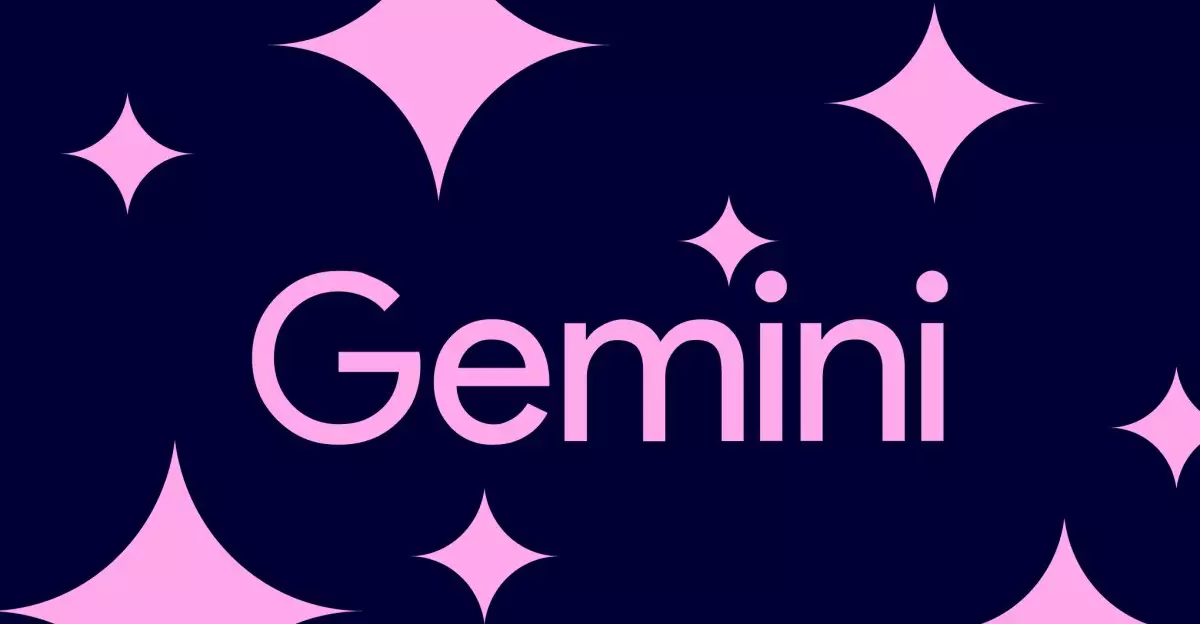With the explosion of artificial intelligence in recent years, companies are racing to enhance user interactions in ways that feel natural and intuitive. Google’s introduction of the Gemini chatbot represents a significant leap towards creating a more personalized interface for users. Unlike many of its competitors, who often rely on static algorithms, Gemini takes advantage of Google’s wealth of search data to tailor its responses. This approach may seem simple, but its implications for how users interact with AI technology are profound.
By allowing Gemini to analyze users’ search histories, Google positions itself uniquely in the crowded landscape of AI assistants. The personalization feature adheres to a fundamental principle: the more relevant the input, the more valuable the output. Using recent searches when making recommendations—whether for travel, restaurants, or otherwise—creates a more seamless experience, inviting users to engage with the chatbot more frequently. This dynamic interaction could transform how individuals seek and consume information, shifting the paradigm from passive consumption to an active dialogue.
Transparency and User Control
Data privacy is often a concern when it comes to personalization. However, Google is ensuring that users maintain control over their data. With Gemini, users will receive a concise outline of how the AI formulated its responses, including whether it used previously saved information or search history. This feature promotes transparency, vital in instilling trust in the technology. Users can swiftly disconnect their search history if they choose, providing a safety net that aligns with increasing demands for data protection in digital environments.
With the ability to view the rationale behind responses, users gain insights into their interactions with the AI. This self-awareness can foster a more dynamic relationship between technology and user, encouraging users to engage actively with the AI rather than merely awaiting responses. By offering this transparency, Google is establishing a new standard for how AI can operate within user frameworks—where personalized recommendations coexist with an ethical approach to data use.
Expanding Capabilities and Future Integration
Gemini is not just a standalone product; it signifies a commitment to integrating AI across Google’s suite of applications. With plans to connect Gemini to platforms like YouTube and Google Photos, the chatbot could become an invaluable tool to garner insights across multiple facets of users’ lives. As Gemini’s capabilities expand with the Gemini 2.0 Flash Thinking Experimental model, users can expect a more intricate understanding of their behaviors and preferences, elevating the user experience.
Moreover, the introduction of personal AI assistants—Gems—broadens the horizon for individualization. This feature invites users to build their chatbots, further propelling them into an era where personalized digital interactions are normative rather than exceptional. Such customization not only democratizes technology but establishes a proactive approach that encourages users to mold their AI companions to their unique needs.
In essence, Google is not just enhancing a chatbot; it is building a sophisticated digital ecosystem that prioritizes personalization, transparency, and adaptability. As companies strive for differentiation in the competitive AI landscape, Gemini embodies a forward-thinking approach that could alter how users interact with technology fundamentally. The fusion of search intelligence, user control, and seamless integration across platforms represents a dynamic shift that could define the future of AI interactions.

